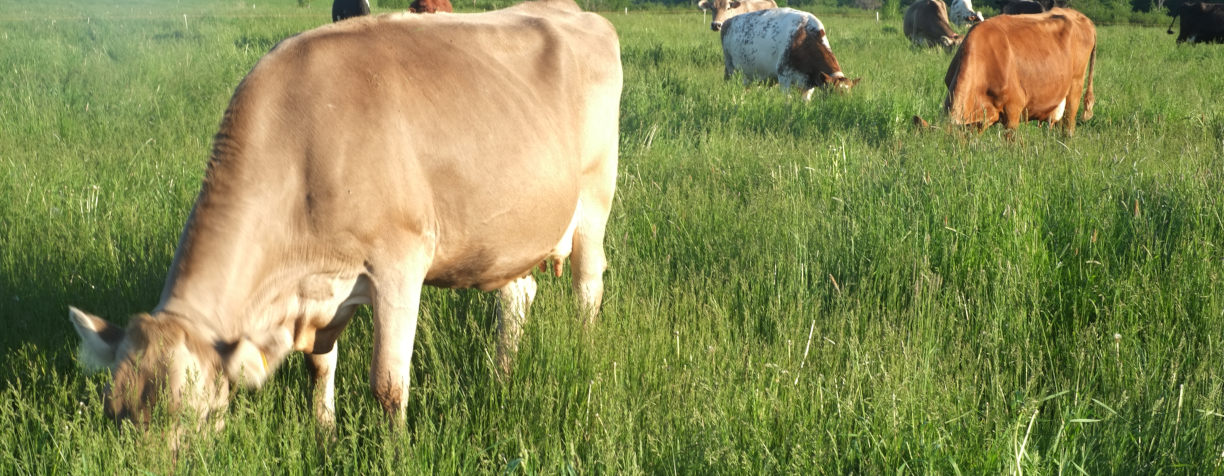Greg Galbraith, for Agri-View
From the Back Paddock
The recent 31st annual GrassWorks Grazing Conference generated a lot of enthusiasm from winter-weary grass-based agriculturists from Wisconsin and beyond. Perhaps a hint that the conference might stand out from other run-of-the-mill farm conferences was the keynote address from Jason Cavadini, an outreach specialist with the University of Wisconsin-Division of Extension. He touched on a broad range of topics in his address, lacing it with humor.
After talking about the proven healing benefits that land dedicated to managed pasture provides, Cavadini surprised the audience by talking about the importance of empathy in the increasingly divided world we live in. He said he believes if we hope to promote the benefits of managed grazing and we want that management style to flourish we must be able to listen to all sides of agriculture in order to succeed at its promotion.
“Practice empathy when listening,” he said.
One of the characteristics of the grazing conference that stands the test of time is that of collaborative learning. There are many practitioners of managed grazing participating in presentations and break-out sessions. They’re willing to share what they’ve learned from observing what’s happened on their grass farms. Part of the beauty of managed grazing is how it’s driven by experiential learning. Different grazing-management styles create different types of pasture swards. What works for one grazier might not for another. Managed grazing is an exciting and dynamic way to farm.
Each year the Jerold Berg Grazing Advocate Award is presented at the GrassWorks Conference to recognize individuals who have helped facilitate the adoption of managed grazing, and whose work on behalf of the grazing community is exceptional. This year Altfrid Krusenbaum received the honor.
“I’m very honored by this incredible honor, it was a complete surprise,” he said. “I didn’t invent dairy grazing. I stand on the shoulders of the pioneers that came before me.”
He talked about a number of those pioneers who he met at the first grazing conference in 1991, which he described as life-changing.
Krusenbaum’s career has been inter-woven with managed grazing. He was a farm operator near Elkhorn, Wisconsin, and is now the owner of Krusen Grass Consulting. He was a key person in the early development of the Dairy Grazing Apprenticeship program.
Krusenbaum describes himself as a German import and city slicker who had a romantic view of agriculture as a young student in Germany.
“I was 22 when I first set foot on a farm as an intern,” he said. “My romantic view of farming was squashed on my first day when I had to catch a calf as it came out of Ushi, the farmer’s favorite cow. There I sat with a slimy bloody calf in my arms and my rear end in the gutter.”
His initial day included sweeping cobwebs in the dairy barn and delivering feed to pigs in a confinement barn with no windows.
“What they didn’t tell me was when you entered and flipped the light on a deafening scream came from the expecting pigs,” he said.
The first day aside, he said he wasn’t deterred; his graduate studies were in dairy science. By then he knew he wanted to farm. Coming from a non-farm background made that challenging in Germany. He visited a friend who had immigrated to southeast Wisconsin to work on a farm. A visit to the friend’s neighbor in Wisconsin led Krusenbaum to meet Sue, who would become his wife.
The couple received an offer to work as herds-people on a farm in the neighborhood where she grew up. After working for several years they started farming on their own as tenants on the Elkhorn farm, which was owned by a land trust. They stayed for 26 years in that role.
Altfrid Krusenbaum served on an advisory committee in the early days of the Dairy Grazing Apprenticeship as well as on its board of directors. Joe Tomandl, the program’s executive director, praises Krusenbaum for his work ethic, professionalism and ability to communicate.
“He was a key figure in the early development of the program,” Tomandl said.
Later Krusenbaum became the education coordinator for the program.
“It allowed me to continue my passion for trying to help develop a career path for new entrants into dairy grazing,” he said.
His advice to young dairy graziers entering farming is to recognize networking and pasture walks as valuable learning tools.
“Opening my farm to fellow farmers, and talking about my successes and failures, allowed us to learn and build a sense of community,” he said.

This is an original article written for Agri-View, a Lee Enterprises agricultural publication based in Madison, Wisconsin. Visit AgriView.com for more information.
Greg Galbraith owned and operated for 30 years a grazing-based dairy farm in central Wisconsin, until selling it to another couple who continues to operate an organic grass-based dairy. He’s an agrarian writer who’s involved in projects promoting the environmental and social benefits of an agricultural landscape dedicated to the functional permanent cover that managed pasture provides.


